Telling China's Story in Objective, Comprehensive Way
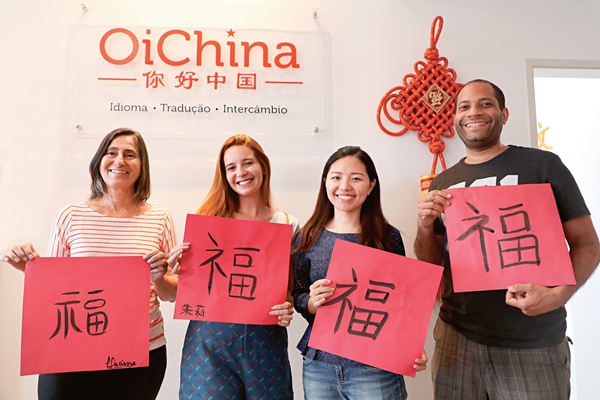
Sixteen years have passed since Wang Yili moved from China to Brazil, in 2007. Wang teaches Mandarin and works as an interpreter in Rio de Janeiro. She likes to share her articles and self-made videos on the Internet, where she has more than two million followers. Wang says she hopes more and more young Chinese, who have been abroad, and who have learned foreign languages and different cultures, will stand out — like her — as they tell the world China's story — in an objective and comprehensive way.
Remarkable Changes
Wang, born after 1990, is from Shijiazhuang, capital of North China's Hebei Province. In 2007, after she completed her junior high school education in China, she relocated to Brazil, with her mother, Liu Xiaojuan. Wang completed her senior high school education in the South American country.
What was Wang's first impression of Brazil? "The country has a pleasant climate, and the people here are very warm." Wang says she had a difficult time communicating with the locals when she arrived in Brazil, at 17. She could not speak and understand Portuguese at first, but she did her best to overcome the various difficulties she encountered during her three years of senior high school education. Her efforts eventually paid off: Wang ranked fourth in the major of business management during Brazil's nationwide college-entrance exams in 2009. She then enrolled in Rio de Janeiro State University.
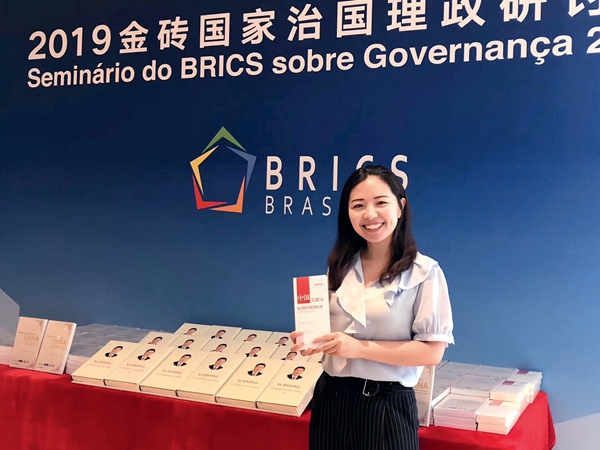
Wang has lived in Brazil for 16 years, and she has noticed the remarkable changes that have taken place in Brazilians' impression of China. In particular, during the past decade, China has embarked on a new journey of advancing high-quality development. As a result, Brazilians have something different to say when they talk about China today, especially when compared with their past impressions of the Oriental country.
"For example," Wang explains, "Brazilians used to consider China to be a country that produced quite a number of small goods, which were cheap, but of poor quality. Nowadays, however, when people in Brazil talk about China, they are more likely to mention the country's progress in technology. They talk about skyscrapers located in metropolises, such as Beijing and Shanghai; they mention new energy vehicle, mobile payment; they praise Chinese-brand smartphones, like Huawei and Xiaomi; and, they mention the convenience brought by e-commerce platforms, such as Aliexpress and Shein. Today, the new connotation of 'made-in-China' means good-quality items with a reasonable price."
Wang likes to share an interesting experience. For the first while after she arrived in Brazil, passersby often greeted her in Japanese. They thought Wang, a young woman with an Asian appearance, had to be Japanese. Now, it is much easier for the locals to recognize that Wang is actually Chinese. They like to greet her with "ni hao," the Chinese version of "hello."

Helping Strengthen China-Brazil Friendship
In addition to teaching Mandarin, interpretation is an important component of Wang's daily work. Being an interpreter has provided her with many opportunities to witness the enhancement of close communications between China and Brazil.
"A large part of my interpretation contents relate to government, business or engineer programs. Ordinary people in Brazil may not know much about China's direct contribution to helping advance Brazil's development. They may not realize the benefits brought by cooperative programs, in the short term. Due in part to this reason, some people have a misunderstanding about China. Therefore, I must shoulder my responsibility of spreading China's voice correctly, helping the locals better understand my home country," Wang says.
She had an unforgettable work experience in May 2015, when she served as an interpreter during Chinese Premier Li Keqiang's visit to Brazil. The high-level visit reached fruitful results. China and Brazil signed agreements that covered the fields of bilateral production capacity, infrastructure construction, finance, aviation, agriculture, new energy, communication, and science and technology. For Wang, Premier Li's visit made her feel like she never moved far from her motherland, and she was particularly impressed by China's growing strength.
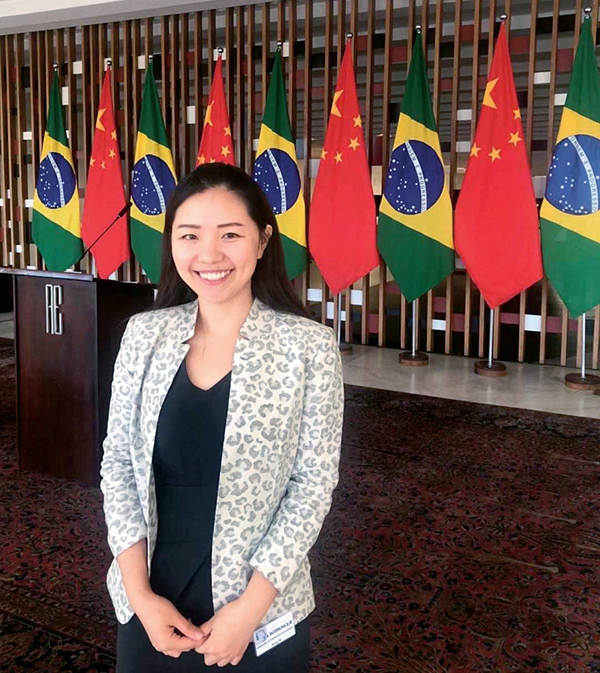
While interacting with students studying Mandarin in Brazil, Wang is pleased when students have wonderful experiences, such as participating in friendly exchanges between China and Brazil.
"A student, named Luiz, works in the IT (Information Technology) industry. He has a Chinese name, Lu Yikai. He began studying Mandarin many years ago, initially because he was interested in the language. Later, he learned Chinese calligraphy and kung fu (martial arts). Once, he had a chance to attend a meeting in Europe. He came to know several Chinese counterparts, from whom he learned about advanced IT techniques developed in China. Luiz communicated with them in Chinese. He introduced his company and business, and he began cooperating with his Chinese counterparts a few months after the meeting."
Wang says Luiz was surprised when he realized his interest in Mandarin not only urged him to expand two hobbies (calligraphy and kung fu), but also helped him reach a breakthrough in business development.
Fernando is another of Wang's students. His Chinese name is Fu Da. Wang and her mother met Fernando at the women volleyball's final, when Chinese women's volleyball team was competing against the Serbian team during the Rio 2016 Summer Olympics. Fernando told Wang and her mother he would surely support the Chinese team. "When my mother and I were waving our national flag, as we cheered the scoring of our Chinese team, we suddenly heard two familiar Chinese songs being played in the gym. We had taught the songs during our Mandarin class! Later, I knew Fernando was working in the gym during the game, and he arranged to play the songs, to encourage the Chinese players. We were so happy the Chinese team eventually won the final game," Wang recalls.
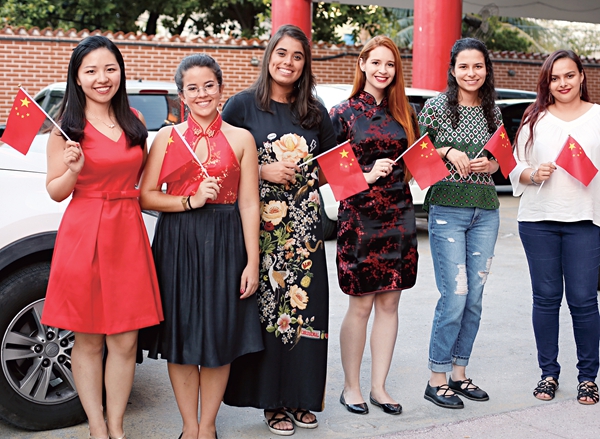
She also has a story about Evandro, whose Chinese name is Gao Wenyong. He is a university professor, who teaches law. "When Evandro was studying Mandarin, at the school established by my mother in Brazil, he received an invitation from both Canada and China to be a visiting professor. My mother outlined the situation and development potential of education in China. Mom said China needs talented people, like him, to make contributions to the advancement of China-Brazil relations. The character 'yong' ( 勇 ), in his name, means 'courage' in Chinese. We encouraged him to be brave, and to accept a new challenge by working in the Oriental country. He decided to relocate to Shanghai, where he worked at Fudan University for three years."
Wang says Evandro has become an expert in the study of China-Brazil relations. Now, he is back in Brazil. He is determined to continue studying Mandarin, so he will do more to help improve friendly communications between China and Brazil.
Photos Supplied by Interviewee
(Women of China English Monthly January 2023 issue)
Please understand that womenofchina.cn,a non-profit, information-communication website, cannot reach every writer before using articles and images. For copyright issues, please contact us by emailing: website@womenofchina.cn. The articles published and opinions expressed on this website represent the opinions of writers and are not necessarily shared by womenofchina.cn.

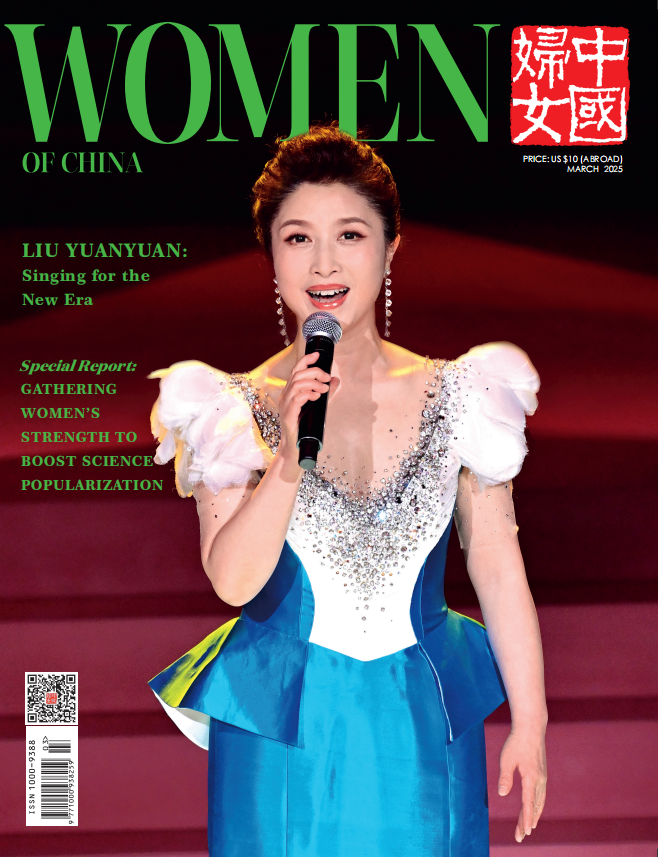

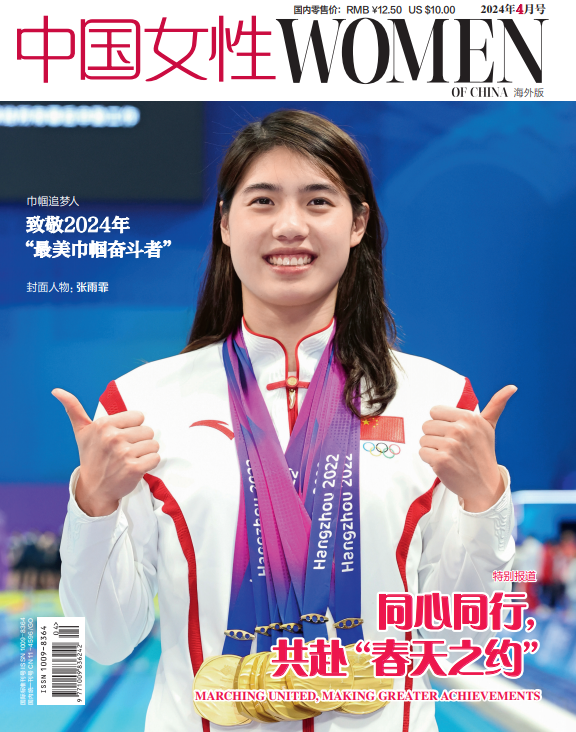


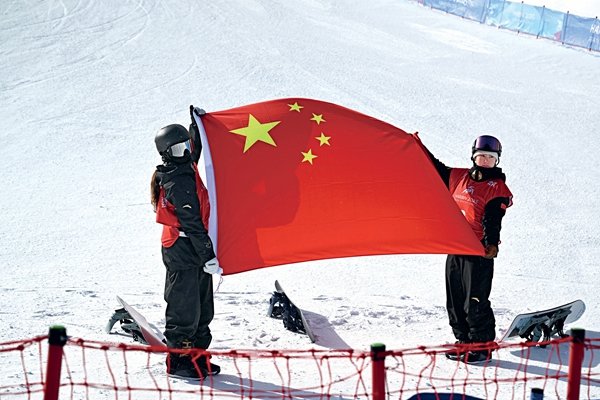
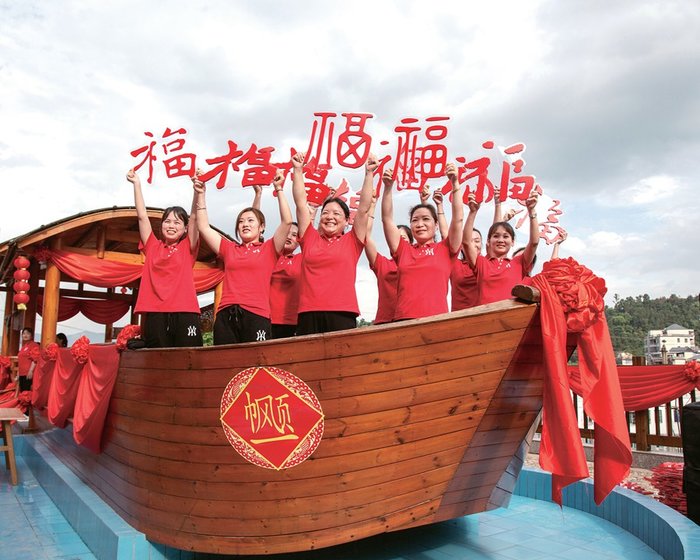
.jpg)

 WeChat
WeChat Weibo
Weibo 京公网安备 11010102004314号
京公网安备 11010102004314号